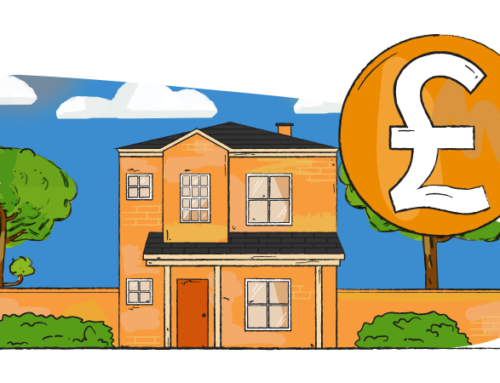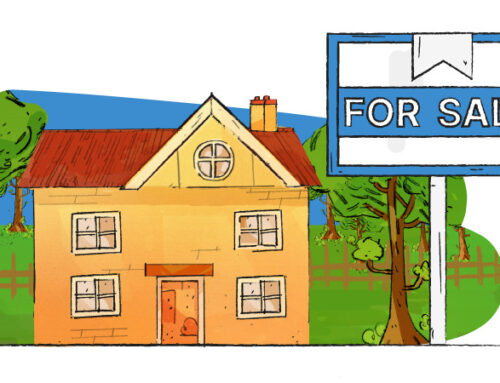A Landlord’s Guide to Gas Safety
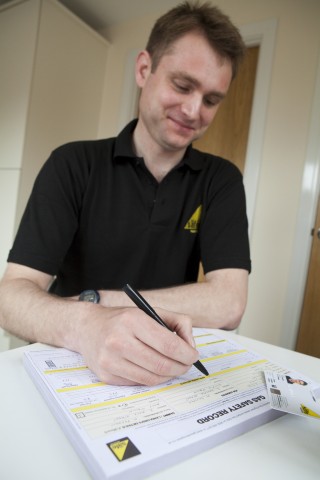
As a landlord, you have legal responsibilities to your tenants regarding gas safety.
Gas Safe Register has put together a guide for helping you understand the law for rental accommodation.
While you may rent out a standard buy-to-let property, be aware that landlords’ duties apply to a wide range of accommodation, including, but not exclusively:
- Residential premises provided for rent by local authorities, housing associations, private sector landlords, housing co-operatives and hostels.
- Rooms to rent in bed-sit accommodation, private households, bed and breakfast accommodation and hotels.
- Rental holiday accommodation, such as chalets, cottages, flats, caravans and narrow boats on inland waterways.

If you rent out a property equipped with gas appliances, you have three main responsibilities:
Maintenance
Pipework, appliances and flues must be maintained in a safe condition. Gas appliances should be serviced in accordance with the manufacturer’s instructions. If these are not available to you, it is recommended that they are serviced annually, unless you are advised otherwise by a Gas Safe registered engineer.
Gas safety checks
A 12-monthly gas safety check must be carried out on every gas appliance and flue. These checks make sure that gas fittings and appliances are safe to use.
Record
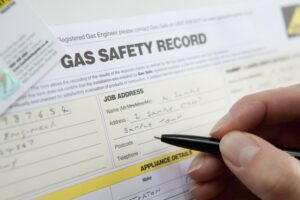
- A description and location of each appliance and/or flue that have been checked.
- The name, registration number and signature of the engineer that carried out the check.
- The date on which the appliance and/or flue was checked.
- The address of the property at which the appliance and/or flue is installed.
- The name and address of the landlord (or their agent where appropriate).
- Any defect identified and any action required or taken to fix it.
- Confirmation of the results of operational safety checks carried out on the appliances.
An example of a landlord Gas Safety Record can be viewed here: http://www.gassaferegister.co.uk/images/Landlords_gas_safety_record_large.jpg
You must also note that all installation, maintenance and safety checks need to be conducted by a Gas Safe registered engineer. These engineers have been checked to ensure they are competent and qualified to work safely and legally with gas.
To find a Gas Safe registered engineer in your area, you can use an online search or call 0800 408 5500.
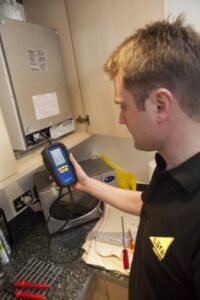
If a tenant has their own gas appliance that you did not provide, you are only responsible for the maintenance of the gas pipework, not for the actual appliance.
It is also your responsibility to ensure your tenants know where to turn off the gas and what to do in the event of a gas emergency.
If you are worried about your tenants denying you access to the property to make checks or complete maintenance, you should make sure that a clause is included in your tenancy agreement that allows you access. It is your duty to take all reasonable steps to ensure that work is carried out, so this may involve giving written notice to a tenant requesting access and explaining the reason. It is a good idea to keep a record of any action, in case a tenant refuses access.
Also, remember that regardless of how short your lease term may be, you are still a landlord and still have legal responsibilities for gas safety.
More information on gas safety can be found on the Gas Safe Register website: www.GasSafeRegister.co.uk.
Disclaimer: This article is for information only and is not official guidance, FCA approved, or legally precise. Just Landlords has used all reasonable care in compiling the information but make no warranty as to its accuracy. If you require information on landlord legislation or best practices please contact your legal representative. For details see our conditions.

